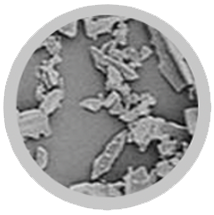Addressing Unmet Medical Needs in Autism Spectrum Disorder
According to the Centers for Disease Control and Prevention (CDC), approximately 1 in 36 children under the age of 8 may be diagnosed with Autism Spectrum Disorder (ASD). Core symptoms of ASD include impairments in social interaction, communication, and the presence of stereotyped repetitive behaviors. Common co-occurring conditions that impact quality of life are extensive and diverse, and include irritability, anxiety, ADHD, allergies, autoimmune disorder, neuroinflammation, and epilepsy. Physicians have reported that irritability impacts a majority of pediatric ASD patients. The presentation of ASD-associated irritability can vary with severity and age and can be caused by a broad array of different factors including lack of sleep, the inability to communicate pain, and mental health disorders. It manifests in a range of behaviors including aggressive behavior, self-harming, isolation, and emotional meltdowns. Limited treatment options currently exist and those that are approved can have significant side effects.
A significant area of unmet medical need for children with ASD is a treatment to address the core symptoms and co-occurring conditions associated with ASD such as irritability. The prevalence and severity of irritability and anxiety challenges faced by people with autism and the need of safe and effective treatment options make ASD an important focus of novel drug discovery to bring forward innovative medical interventions.
Axial is developing AB-2004, a therapeutic candidate for the reduction of irritability in children with autism.
Axial’s novel therapeutic approach is focused on the development of small molecule therapeutics with defined mechanisms of action against new targets in the gut to mitigate the impact of metabolites and bacteria linked to the pathology, progression, and symptoms of disease, with an initial focus on neurological diseases and disorders.


